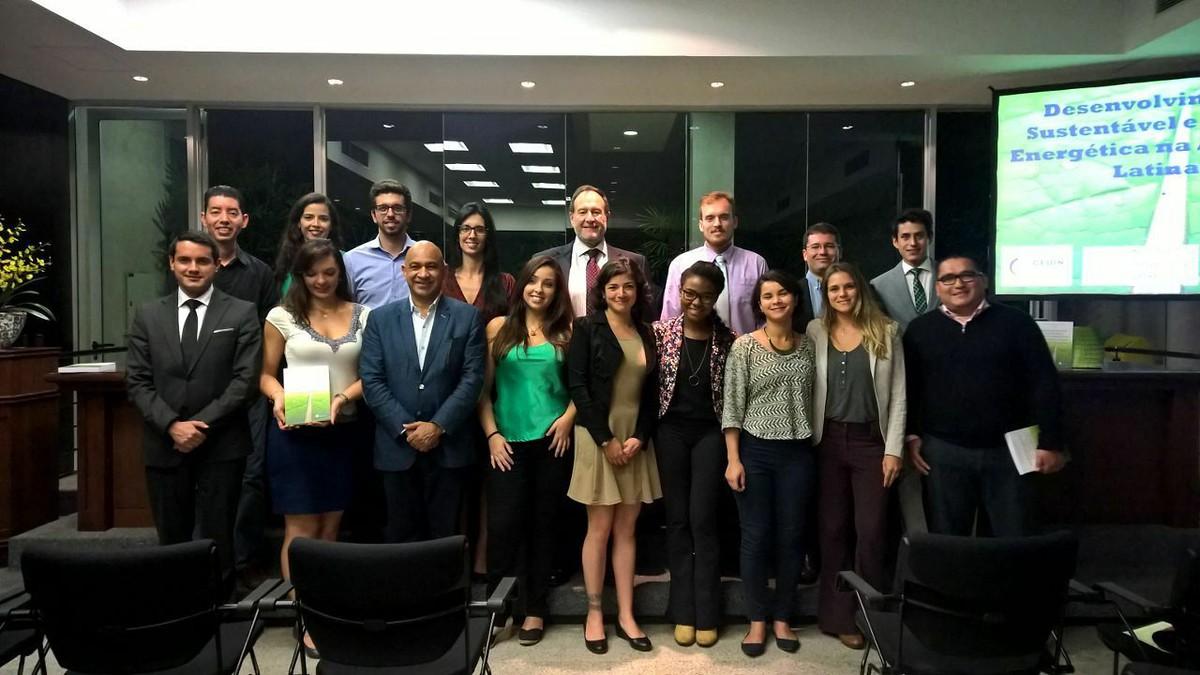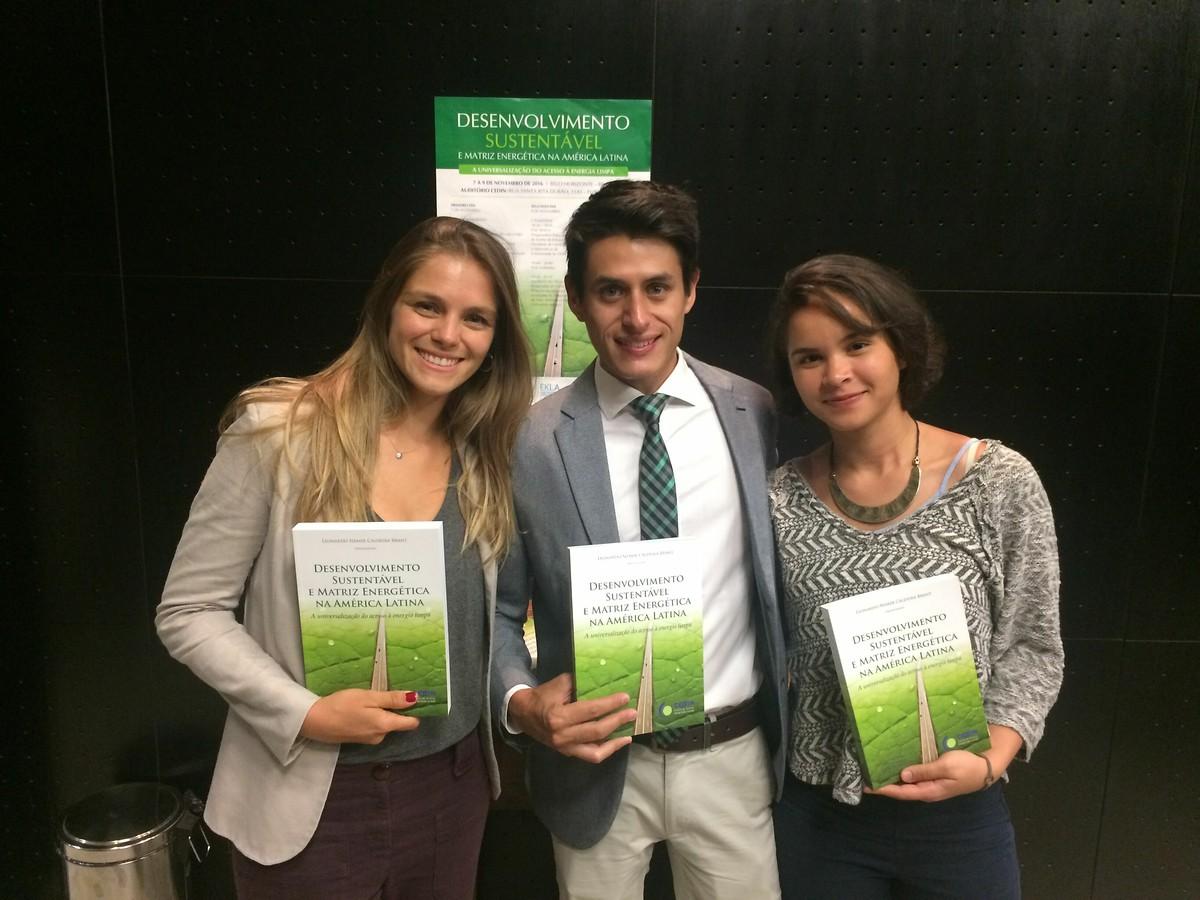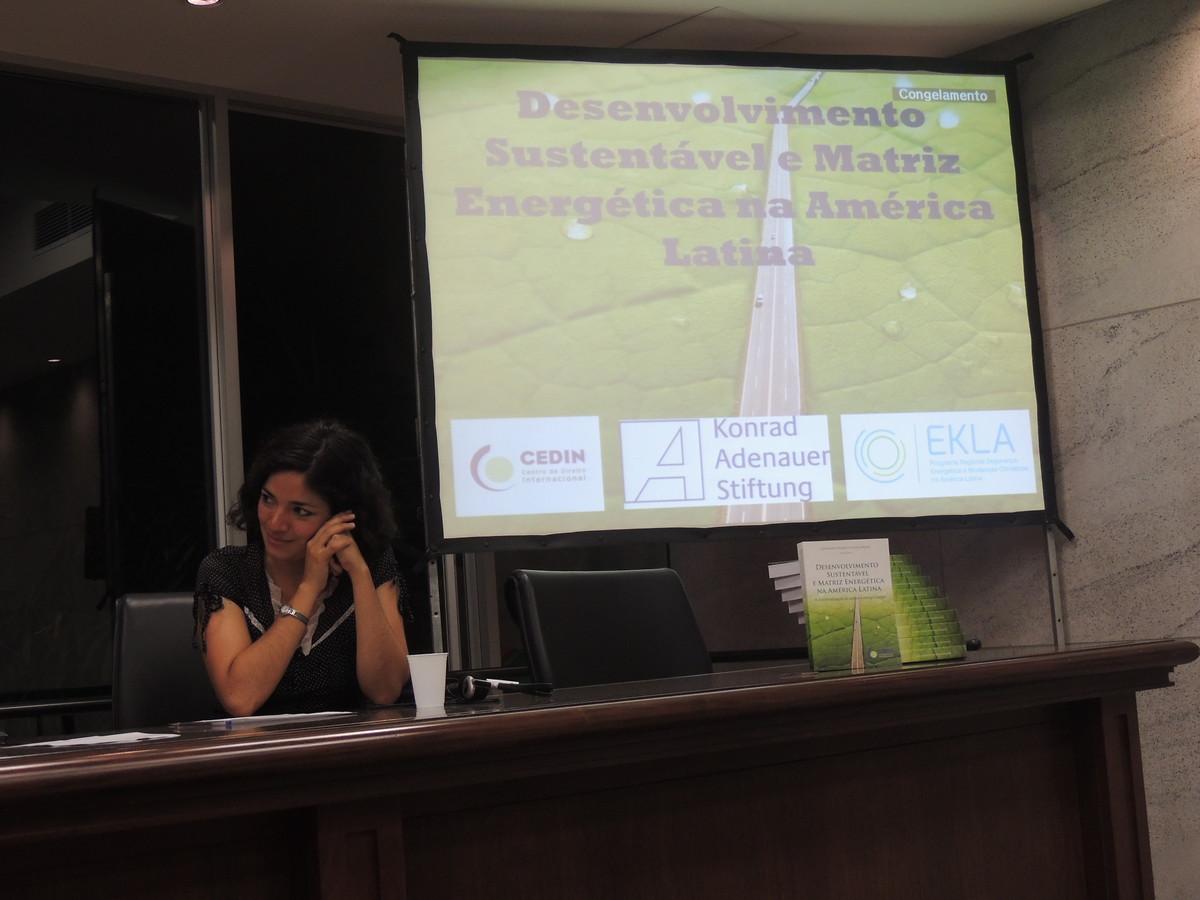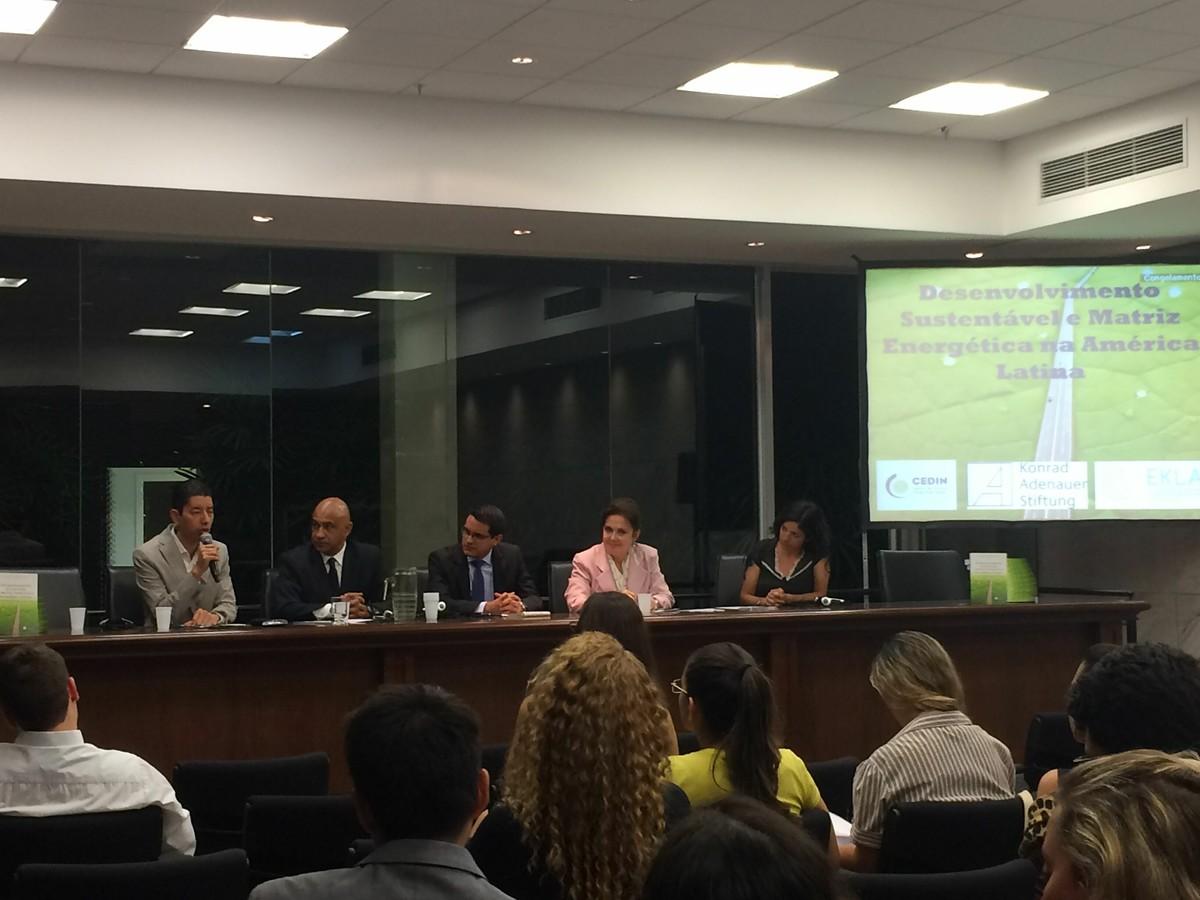Event reports
Between November 7 and 9, 2016, the Center for International Law - CEDIN, together with the Regional Program for Energy Security and Climate Change in Latin America of the Konrad Adenauer Foundation, held in Belo Horizonte, Brazil, the Seminar "Sustainable Development and Energy Matrix in Latin America and the Caribbean", as part of the research project on "Sustainable Development and Energy Matrix in Latin America: a plan to guarantee access to clean energy for the entire population of the region". This project aims to analyze and describe the current panorama of sustainable development and universal access to clean energy in five Latin American states: Brazil, Chile, Colombia, Peru and Mexico. In addition to its descriptive character, the Project is propositive, since it indicates possibilities for improvement in policies and plans for the universalisation of access to clean energy by the rural population of the five aforementioned countries.
On the first day of the event (7/11), the collective publication on "Sustainable Development and Energy Matrix in Latin America: Access to Clean Energy" was launched. The teams of researchers who worked on the writing of the book presented their observations and conclusions. First, Isabel Ferreira commented on the international political-juridical regime of access to energy, highlighting the UN's Sustainable Development Goals (SDG) and the need to take into account the particularities of each Latin American country in order to achieve the access to clean energy. She also discussed regional institutional integration mechanisms, such as Mercosur and the OAS. After that, the team responsible for Chile presented its conclusions, in which the internal structure of electric distribution in Chile and Chile's distrust of regional integration in the energy field were highlighted. Regarding the presentation of Peru, it was highlighted that the interrelationship between State, market and society is a fundamental aspect to guarantee the universal access to energy in that country.
After that, the Brazilian team presented its observations. It was pointed out that 1% of the Brazilian population still does not have access to electric energy and the more isolated the community the more complex and difficult becomes the access. In this sense, the Programme Light for All (Luz para Todos), instituted on November 11, 2003, played a crucial role in reducing the percentage of the population without access to electric energy and also in expanding the national energy matrix. Finally, the researchers pointed out that a major current challenge in Brazil is to guarantee access to energy in the Amazon region, and the exploration of unconventional sources will be an efficient means to achieve this goal.
After Brazil, Colombia made its presentation, in which the need to create autonomous systems of energy generation was highlighted. In this sense, the team, adopting a technical bias, suggested the implementation of reversible hydroelectric power stations and the realization of a cadastre of rural populations without access to electrical energy in Colombia.
Following the presentations on Chile, Peru, Brazil and Colombia, Mr. Pedro Gamio, Former Deputy Minister of Energy of Peru, gave his talk. He stressed that there is a global obligation to remedy the effects of climate change, an obligation that focuses on the principle of common but differentiated responsibilities. Gamio also indicated that the main challenge to access to energy is not electricity production, but the storage of electricity, since production is becoming cheaper. Knowing that Latin America concentrates 7% of the world's electricity, he suggests the creation of a common energy market within the framework of the Pacific Alliance, in which civil society would play an important role in the realization of clean energies.
As the last lecture on the first day of the Seminar, the team of researchers from Mexico held its presentation, which described the challenge of defining the Mexican rural population as well as the Energy Reform of that country.
The second day of the Seminar began with a lecture by Mr. Guillermo Acuña, Legal Assistant to the Secretariat of the Economic Commission for Latin America and the Caribbean (ECLAC). He said that climate change is undeniably impacting access to energy in Latin America and that the current development model creates inequalities, environmental crises, recessions, and especially socio-environmental conflicts (SECs) that can be defined as conflicts between social sectors regarding access to natural resources. SECs may be local (eg, between the State and internal indigenous peoples) or international, involving more than one State. An example of this second is the case of the Uruguay-Argentina paper mills, referring to the installation of two pulp mills on the Uruguayan banks of the Uruguay River, a fact that has been opposed by Argentina. Another relevant concept presented by Acuña is the social license, which refers to the authorization by social groups of a certain developmental project that has considerable environmental impacts.
Next, Ms. Paz Araya, a researcher at the Research Center University of Chile, gave her lecture on Chile's energy matrix. She pointed out that for the domestic energy supply in Chile, there is an intense burning of firewood, and therefore, it is necessary to implement a sustainable management of the Chilean forests. Araya also said that a serious problem is the burning of wet firewood inside homes, a fact that generates a large amount of smoke and compromises the health of residents, especially women. She pointed out that 29,000 homes still do not have access to electricity in Chile, and it is up to the state to ensure that these populations receive energy from sources less harmful than firewood. Finally, her speech indicated that the universalisation of access to clean energy must be achieved through the integration of civil society in the decision-making processes of energy policy. Local energy policy must be planned and implemented according to collective and constructive processes, and not in an autocratic way by public authorities or electric companies.
As the last presentation of the second day, Ricardo Beltrán Chacón, from the Research Center CONACYT (CIMAV) in Mexico delivered a lecture on access to energy in Mexico. He pointed out that the most relevant source in this country is the hydroelectric plant, and the largest international consumer of energy produced in Mexico is the United States. Chacón extensively described the Mexican Energy Reform, stating that its main characteristic was to break with the state monopoly in the electric sector. In the framework of the reform, Mexican authorities have encouraged the implementation of projects aimed at diversifying the country's electrical matrix, especially solar panels and wind generators. Initially, these projects have suffered great resistance from local communities, but due to public campaigns, they are increasingly being welcomed by the affected groups.
The third and final day of the event began with a lecture by Mr. Omar Prias, principal investigator of the National Strategic Program on Energy Management Systems in Industry at the National University of Colombia in Bogotá. He pointed out that 70% of the Colombian energy matrix is made up of hydroelectric plants and 11% is produced in coal-based thermoelectric plants. Prias also indicated that access to energy is an efficient means to reduce poverty in the Colombian rural area, as it creates opportunities and development for rural populations.
The last speaker was Mrs. Virgínia Parente, a professor at the Institute of Environmental and Energy at the University of Sao Paulo. An important point of discussion was the distinction between energy security and independence. She stressed that a state or region can acquire energy security without necessarily achieving energy independence, because a proper management of energy resources would already be enough to guarantee security, even if it is necessary to import energy from external producers. The speaker also pointed out that the concept of renewable energy should be looked at with caution, especially since energies considered clean can have negative internal aspects. She cited as an example solar energy, since solar panels are mostly manufactured in China through a highly polluting production process. Finally, Parente also pointed out that investments in renewable energies are deeply complex, involving a range of different factors. She pointed out, for example, government changes, which can impact the advancement and continuity of long-term energy projects; the large volume of capital that electrical projects require; and also the new demands that arise in the face of investors, making these projects financially unattractive.
The seminar ended with a round table led by Percy Grandez Barrón, a Peruvian lawyer specialized in environmental law and composed by Paz Araya, Omar Prias, Ricardo Beltran Chacon and Virgínia Parente. In this debate, which also had the participation of researchers and the public, the main points discussed in the 3-day seminar were summarized.
PowerPoint presentations and the book are available on the side for download.










